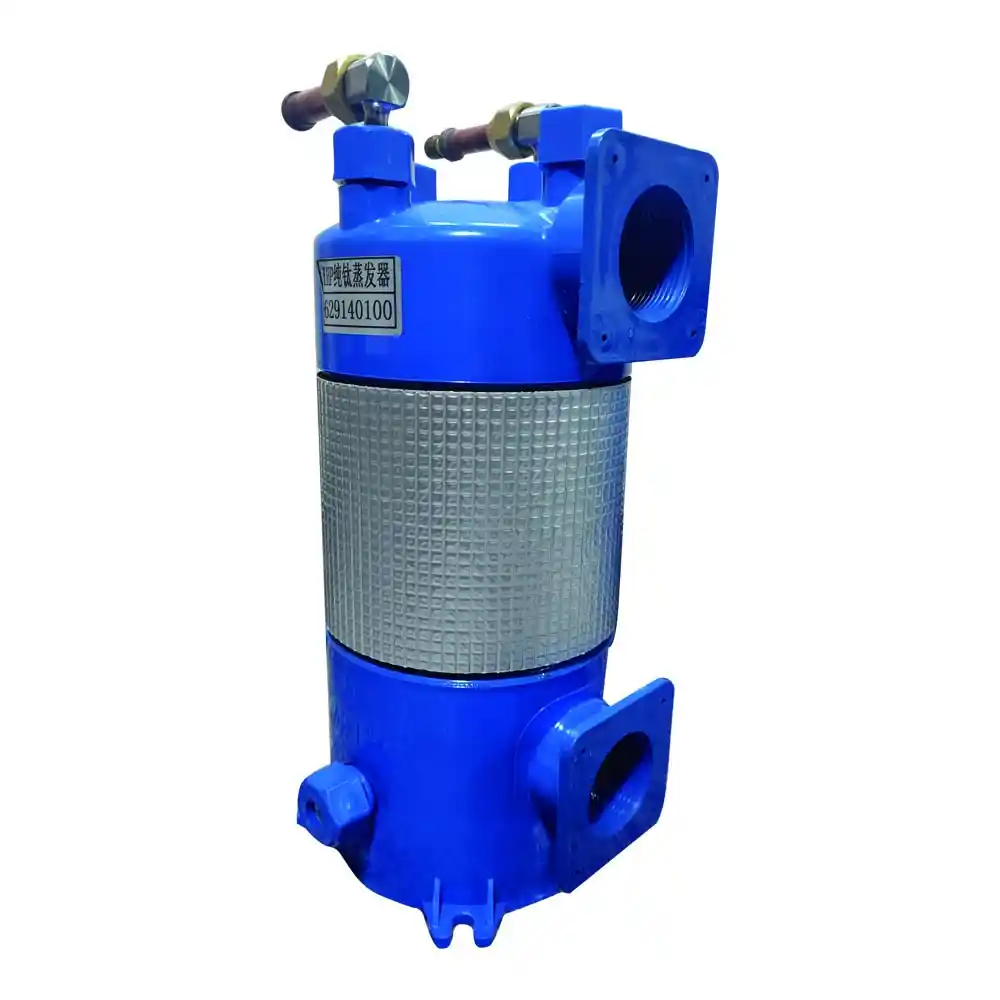1. Introduction
In the realm of commercial buildings, the integration of advanced HVAC systems is crucial for ensuring optimal indoor comfort, energy efficiency, and sustainability. Titanium Coil Heat Exchangers have emerged as a game-changing technology in commercial HVAC applications, offering exceptional performance and numerous benefits. This article explores the application of Titanium Coil Heat Exchangers in commercial buildings, their advantages, performance comparisons, and specific case studies.
2. Titanium Coil Heat Exchangers in Commercial HVAC Systems
Titanium Coil Heat Exchangers have revolutionized HVAC systems in commercial buildings by improving heat transfer efficiency, energy conservation, and overall system performance. Let’s delve into the specific applications and advantages of Titanium Coil Heat Exchangers in commercial HVAC systems:
2.1 Benefits of Titanium Coil Heat Exchangers in Commercial Buildings
Titanium Coil Heat Exchangers offer several advantages that make them highly suitable for commercial building applications:
2.1.1 Enhanced Heat Transfer Efficiency
Efficient heat transfer is essential for maintaining a comfortable indoor environment while minimizing energy consumption. Titanium Coil Heat Exchangers are designed with a large surface area and high thermal conductivity, enabling efficient heat exchange between the heating and cooling mediums. This results in improved system performance, reduced energy costs, and enhanced occupant comfort in commercial buildings.
2.1.2 Corrosion Resistance and Durability
Commercial buildings often encounter moisture, airborne contaminants, and potentially corrosive substances. Titanium Coil Heat Exchangers exhibit excellent corrosion resistance, ensuring long-term durability and preventing system degradation. Their resistance to corrosion eliminates the risk of leaks or performance deterioration, leading to reliable and long-lasting HVAC systems in commercial settings.
2.1.3 Reduced Maintenance Requirements
Maintenance is a critical aspect of commercial HVAC system operation, and minimizing maintenance needs can result in cost savings and improved system uptime. Titanium Coil Heat Exchangers require minimal maintenance due to their corrosion-resistant properties. They do not require frequent cleaning or chemical treatments, reducing maintenance efforts and associated costs for commercial building owners and facility managers.
2.1.4 Energy Efficiency and Sustainability
Commercial buildings consume a significant amount of energy, and improving energy efficiency is a top priority for building owners. Titanium Coil Heat Exchangers contribute to energy efficiency by enhancing heat transfer efficiency, reducing energy waste, and optimizing HVAC system performance. The use of these heat exchangers aligns with sustainability goals, reducing greenhouse gas emissions and promoting environmental responsibility in commercial buildings.
2.2 Performance Comparison: Titanium Coil Heat Exchangers vs. Traditional Heat Exchangers
To understand the advantages of Titanium Coil Heat Exchangers in commercial buildings, let’s compare their performance with traditional heat exchanger types. The following table presents a comparison of Titanium Coil Heat Exchangers, Plate Heat Exchangers, and Cross Flow Heat Exchangers in commercial HVAC applications:
| Comparison Criteria | Titanium Coil Heat Exchangers | Plate Heat Exchangers | Cross Flow Heat Exchangers |
|---|---|---|---|
| Heat Transfer Efficiency | High | High | Moderate |
| Corrosion Resistance | Excellent | Good | Moderate |
| Compactness | Compact | Compact | Bulky |
| Maintenance Requirements | Low | Low | Moderate |
| Energy Efficiency | High | High | Moderate |
3. Case Studies: Application of Titanium Coil Heat Exchangers in Commercial Buildings
Let’s explore two case studies that demonstrate the successful implementation of Titanium Coil Heat Exchangers in commercial HVAC systems:
3.1 Case Study 1: Office Building Retrofit
An existing office building underwent a comprehensive HVAC system retrofit to improve energy efficiency and occupant comfort. The project involved replacing the outdated shell and tube heat exchangers with Titanium Coil Heat Exchangers. The retrofit resulted in significant energy savings, reduced maintenance requirements, and enhanced occupant comfort. The building owners experienced a rapid return on investment through reduced energy bills and improved tenant satisfaction.
3.2 Case Study 2: Shopping Mall HVAC Upgrade
A large shopping mall aimed to upgrade its HVAC system to address comfort issues, reduce energy consumption, and enhance sustainability. Titanium Coil Heat Exchangers were integrated into the system to optimize heat transfer efficiency and improve overall system performance. The upgrade resulted in improved indoor comfort, reduced energy costs, and a reduced carbon footprint for the shopping mall. The successful implementation of Titanium Coil Heat Exchangers contributed to the mall’s reputation as an environmentally conscious and energy-efficient establishment.
4. Conclusion
The incorporation of Titanium Coil Heat Exchangers in commercial HVAC systems offers numerous benefits, including enhanced heat transfer efficiency, corrosion resistance, reduced maintenance requirements, and improved energy efficiency. Commercial buildings can achieve optimal performance, occupant comfort, and energy savings by leveraging the advantages of Titanium Coil Heat Exchangers. The presented case studies highlight their successful application in office building retrofits and shopping mall HVAC upgrades, demonstrating the positive impact on energy consumption, occupant comfort, and environmental sustainability. By embracing Titanium Coil Heat Exchangers, commercial buildings can realize the potential for efficient and sustainable HVAC systems.


